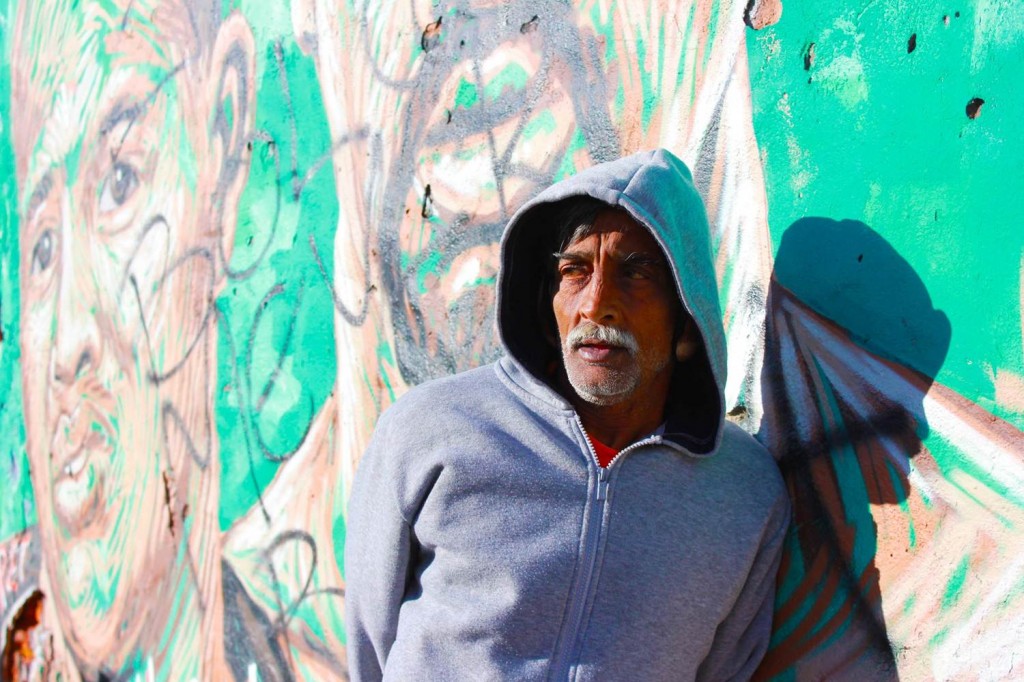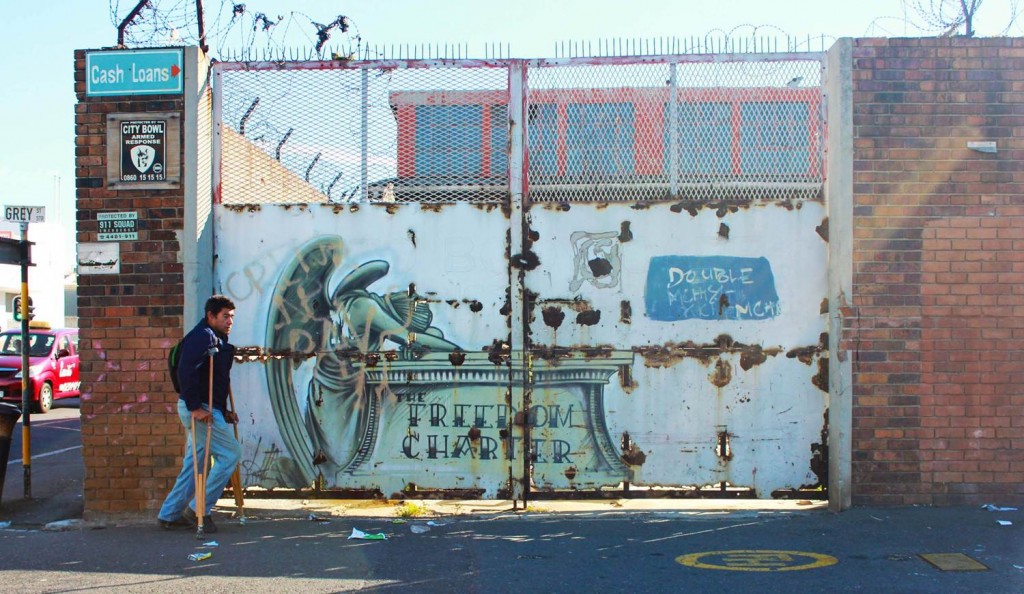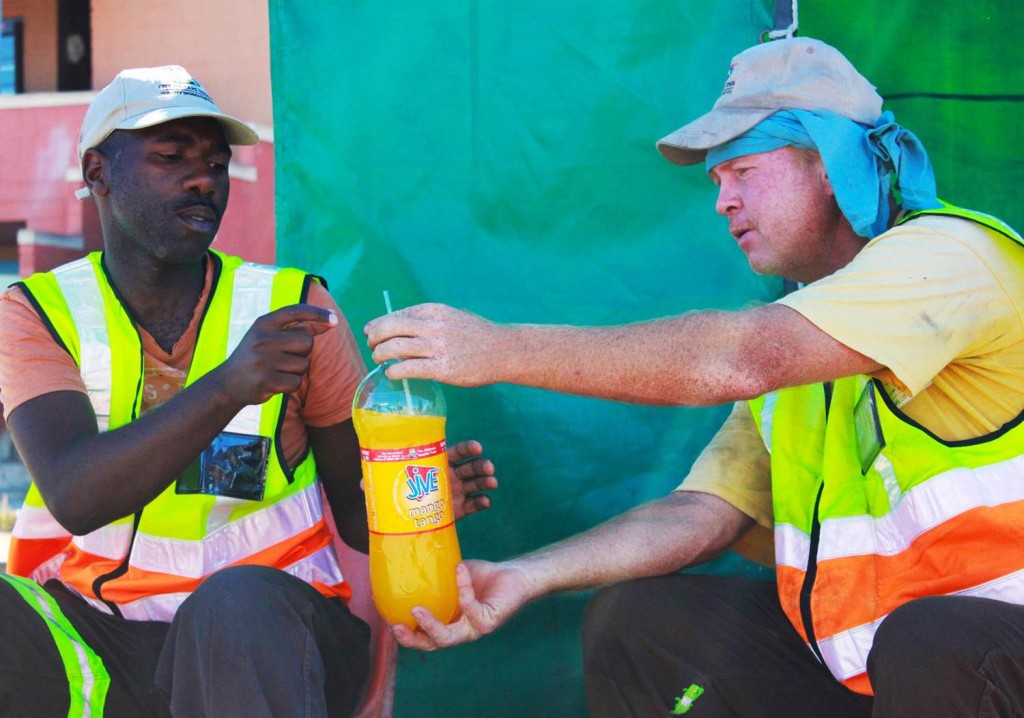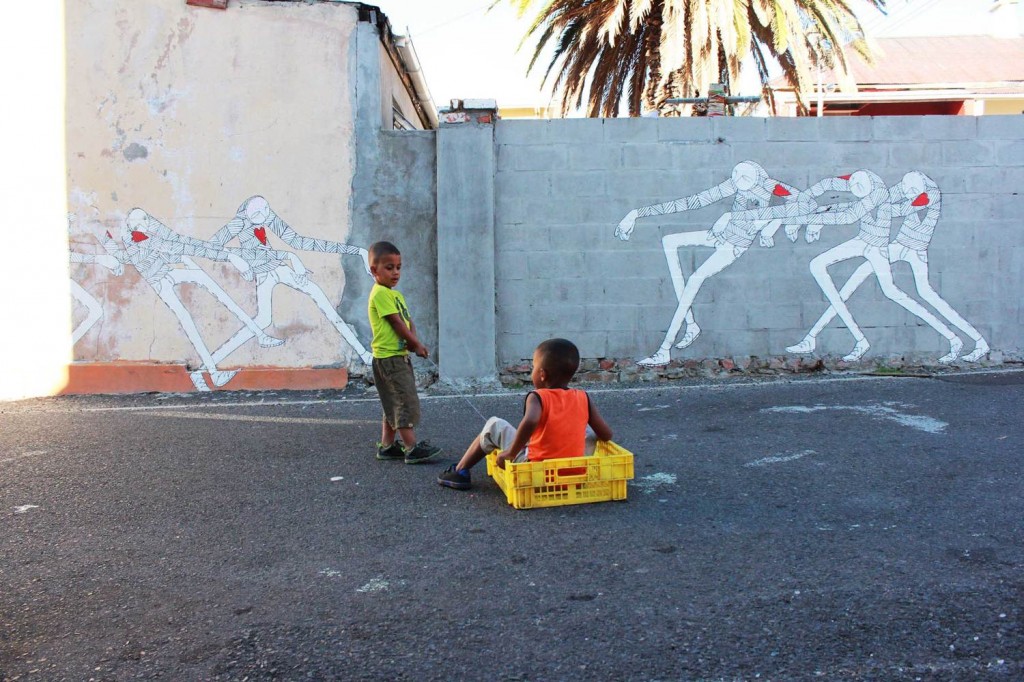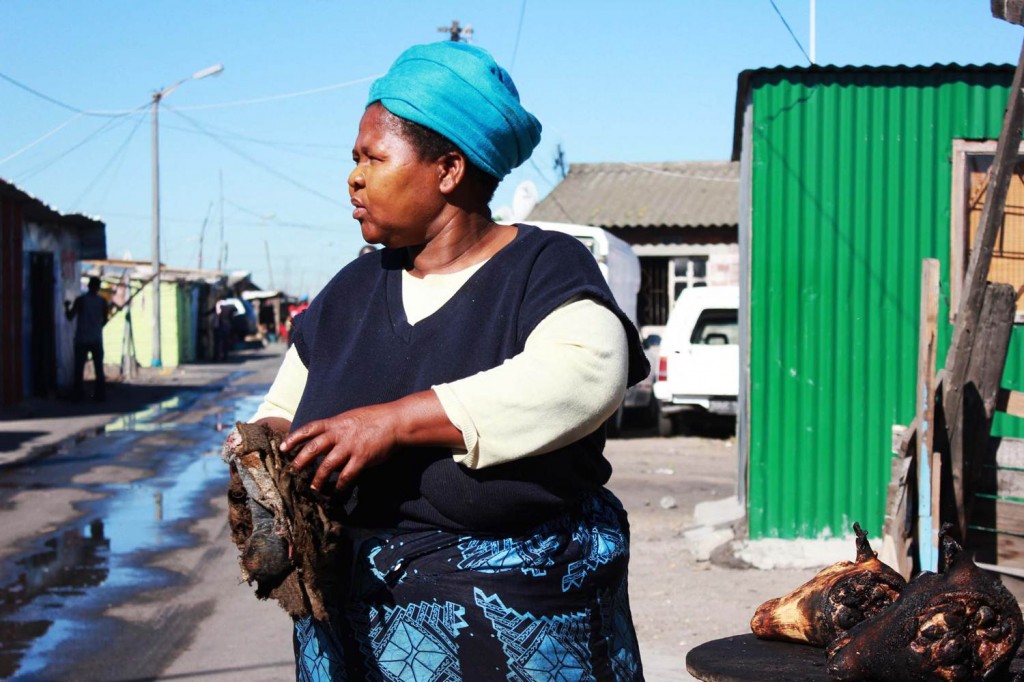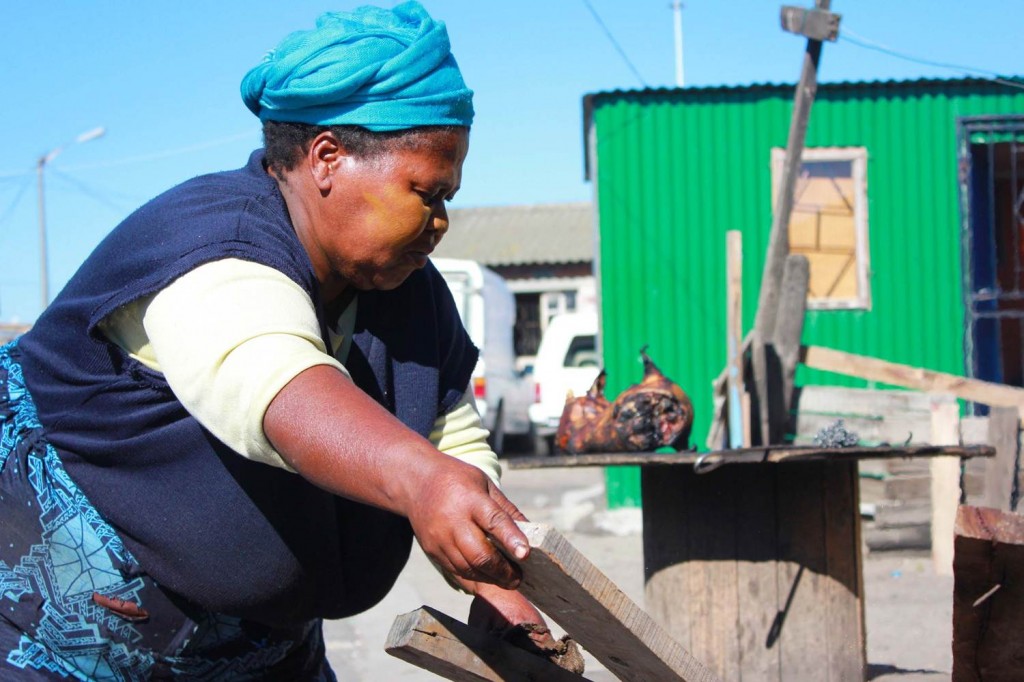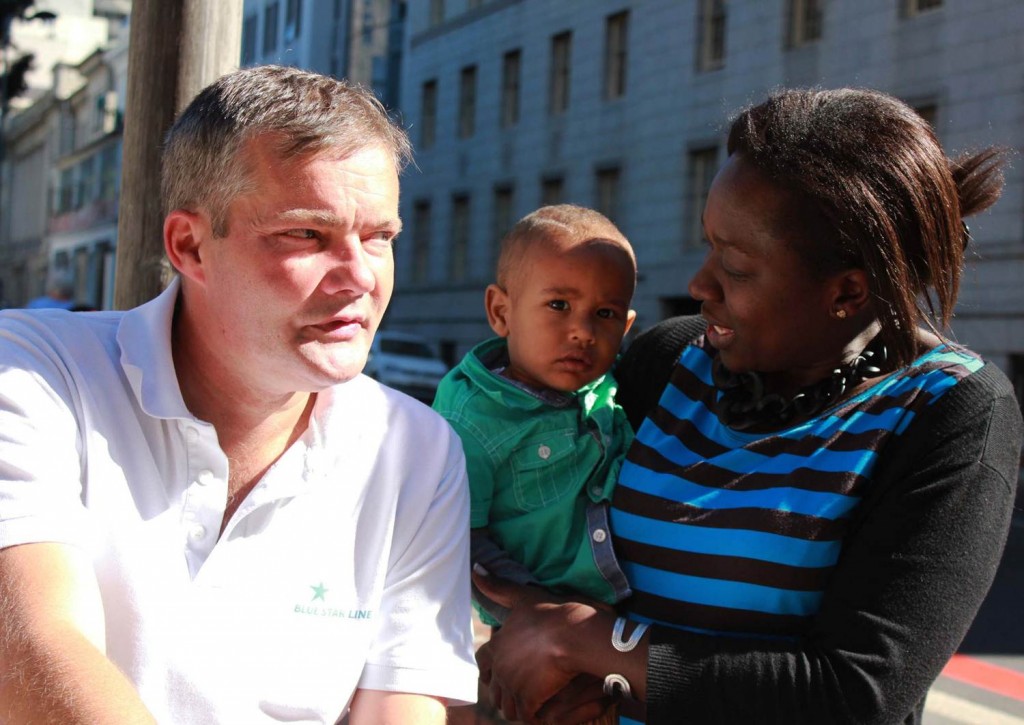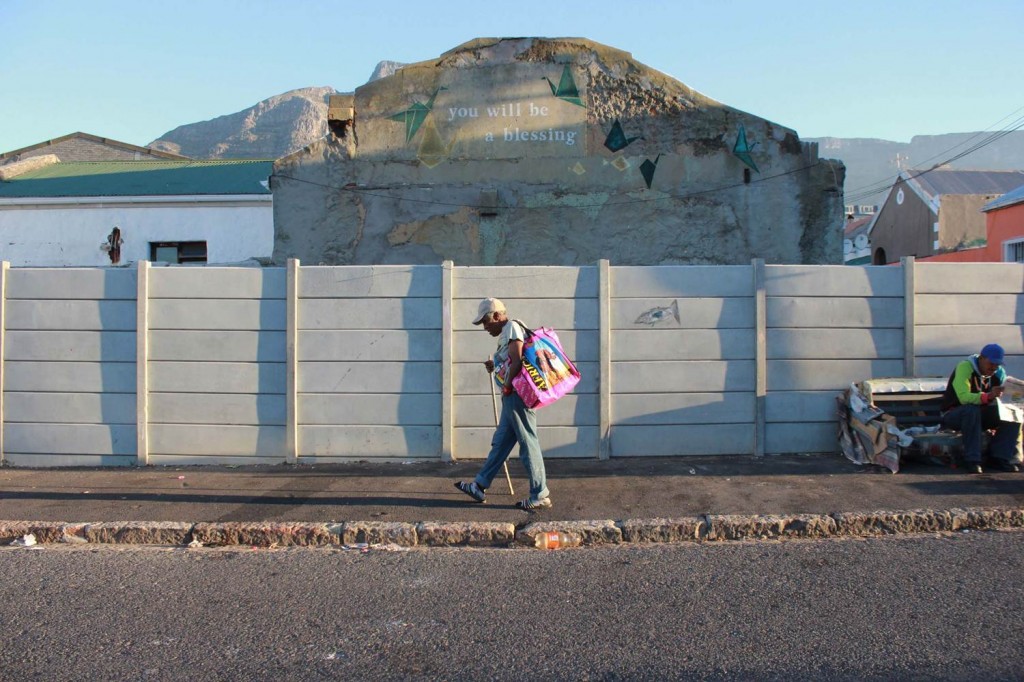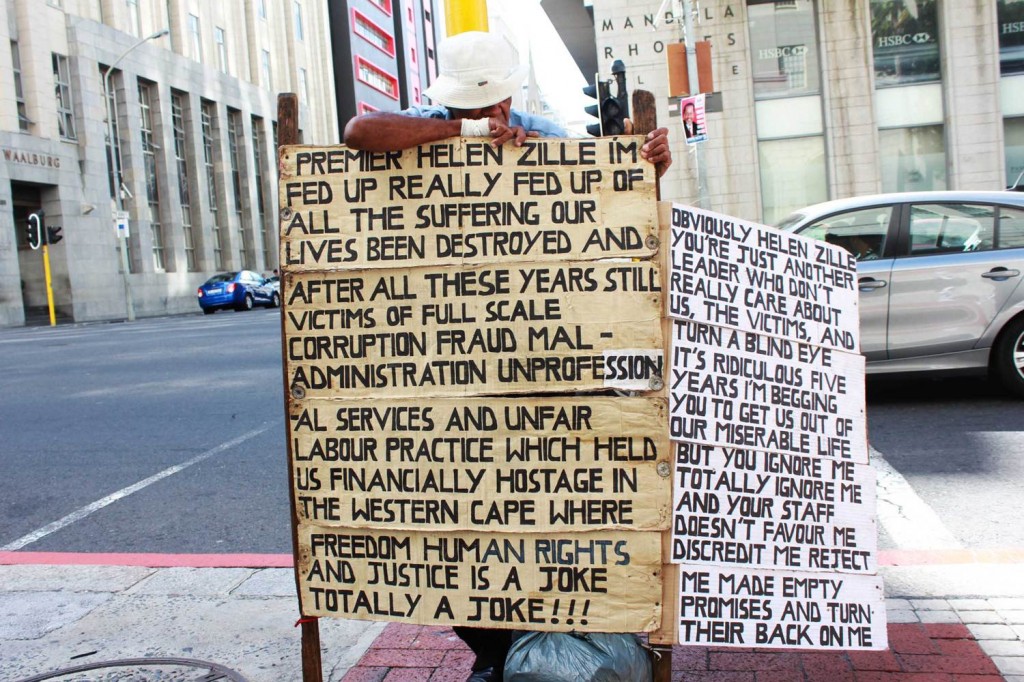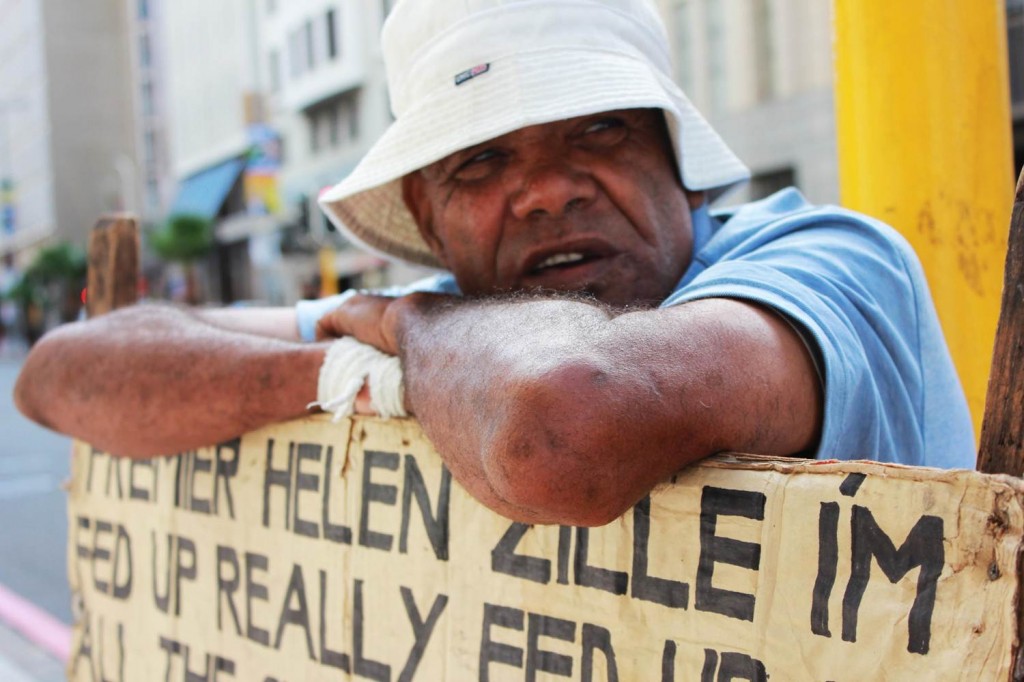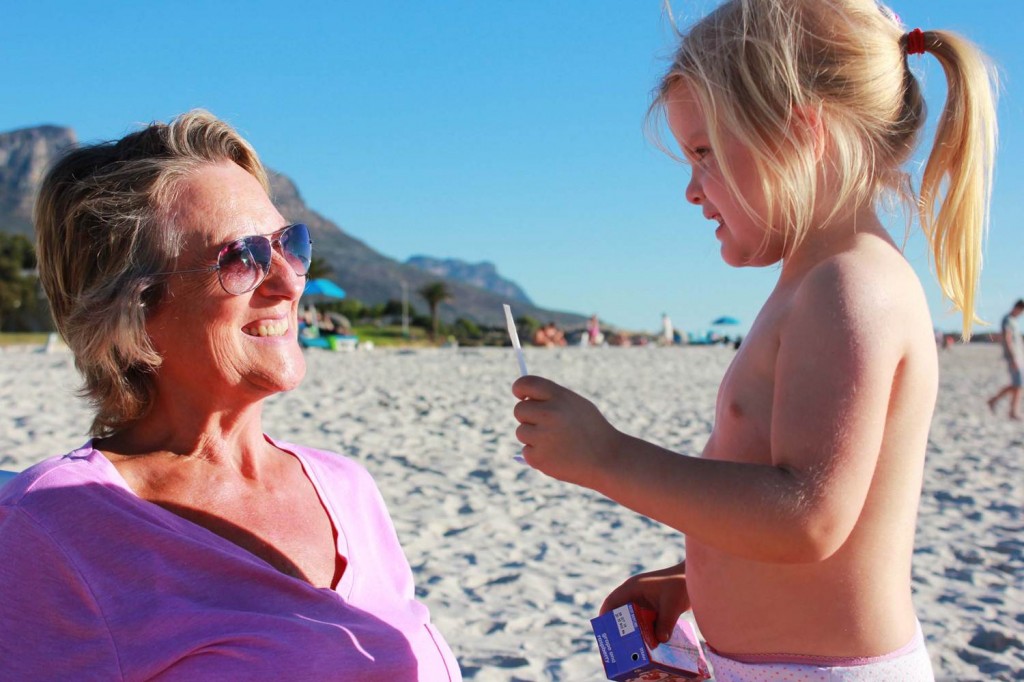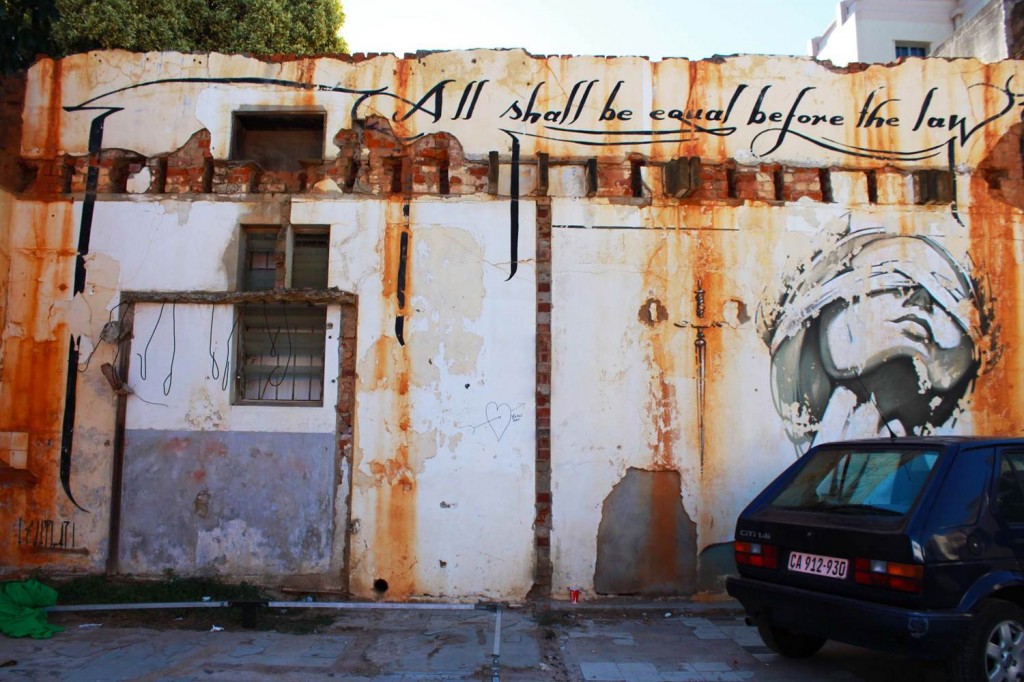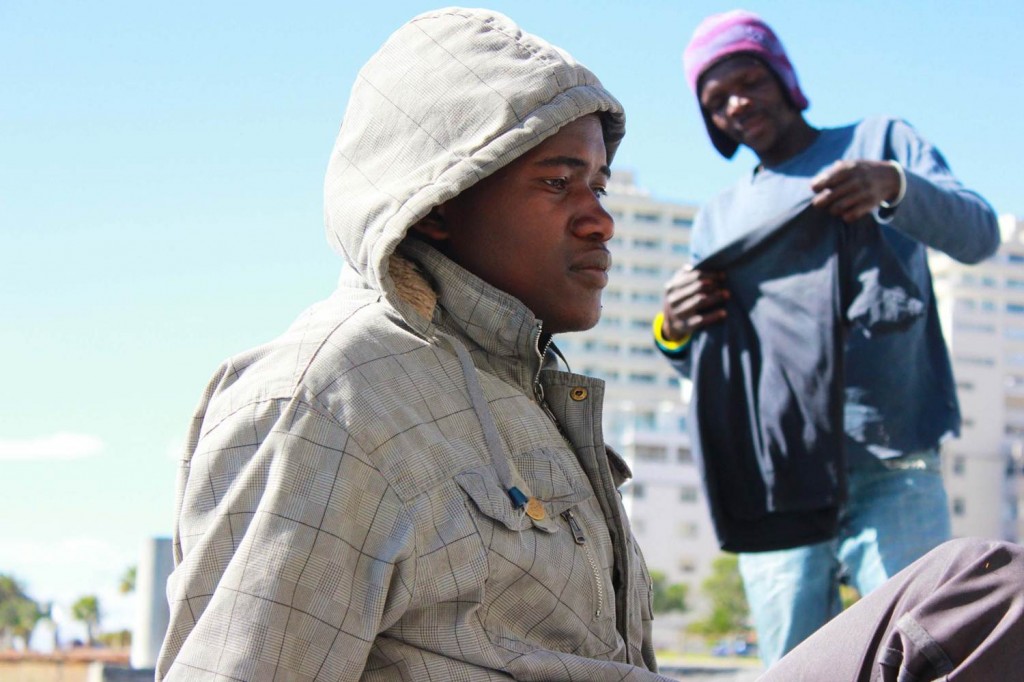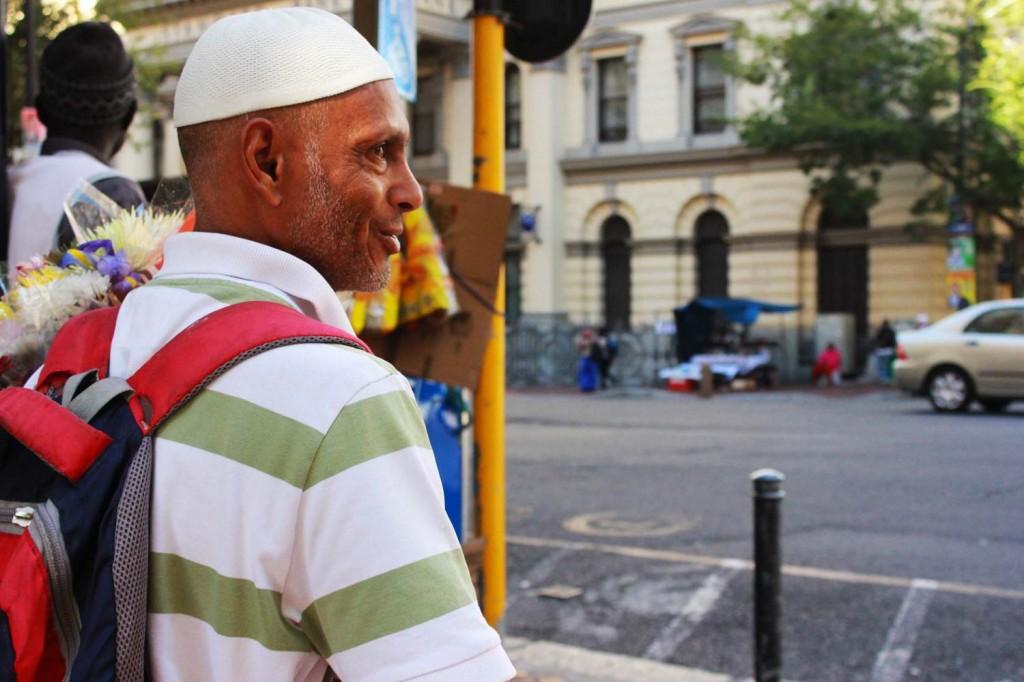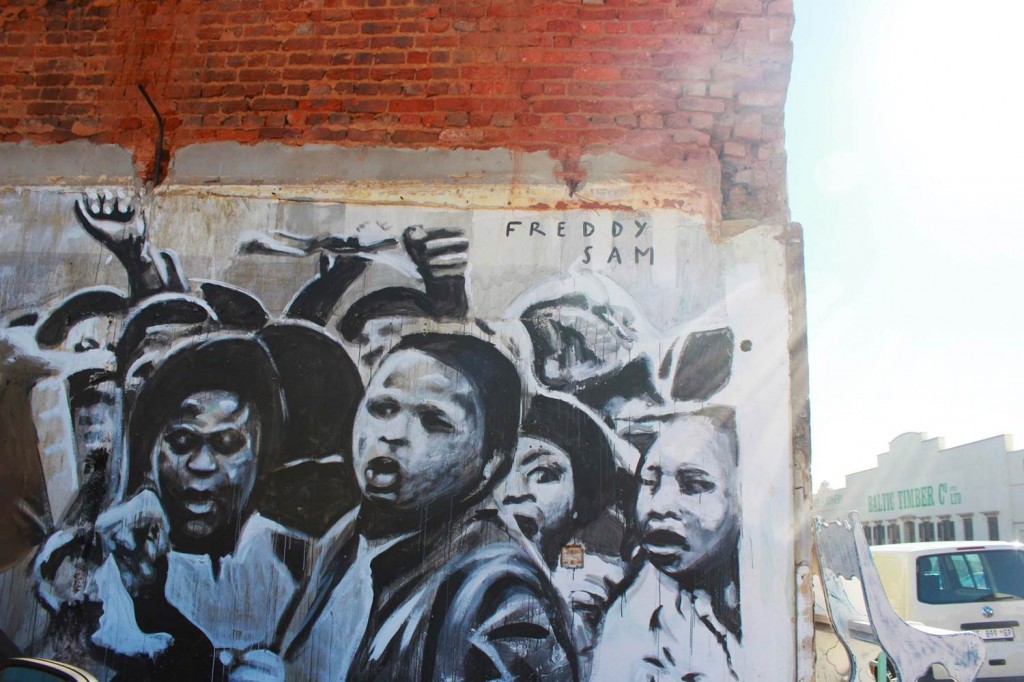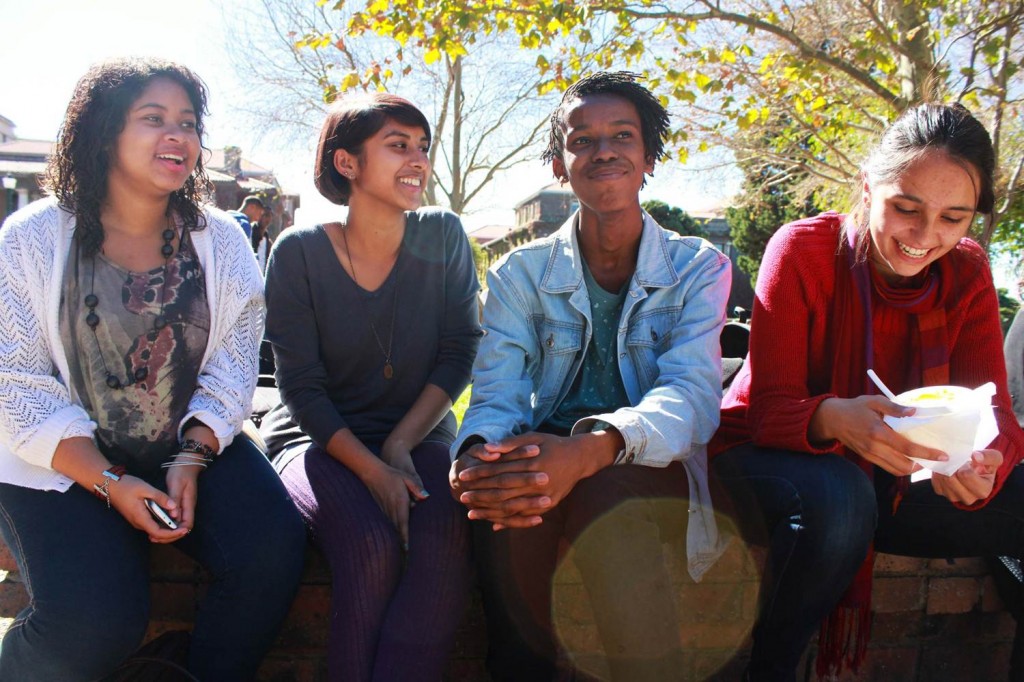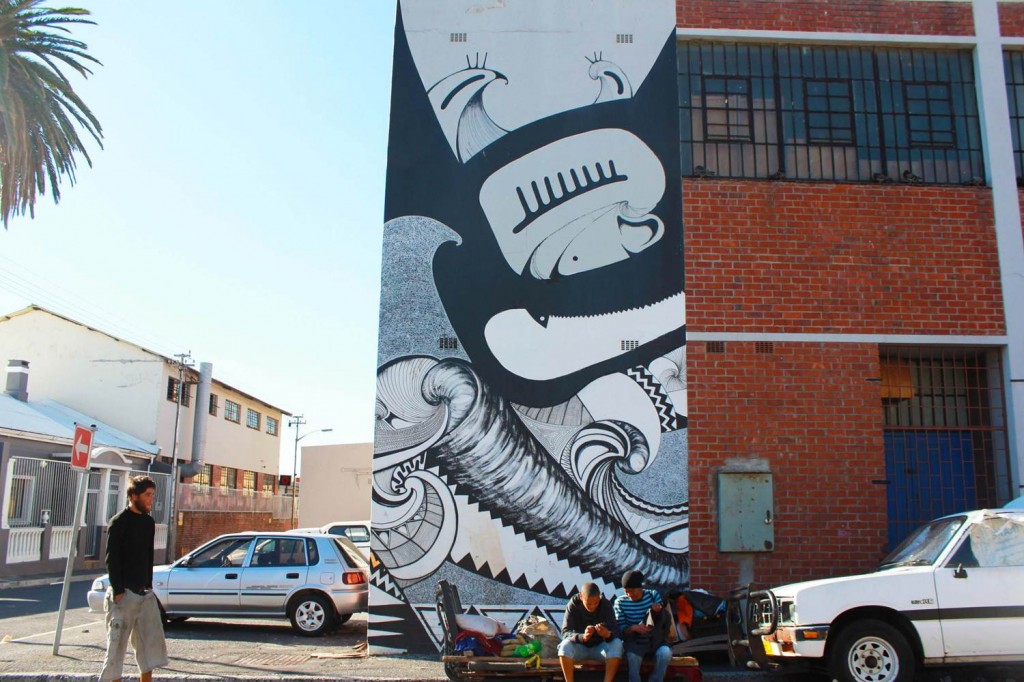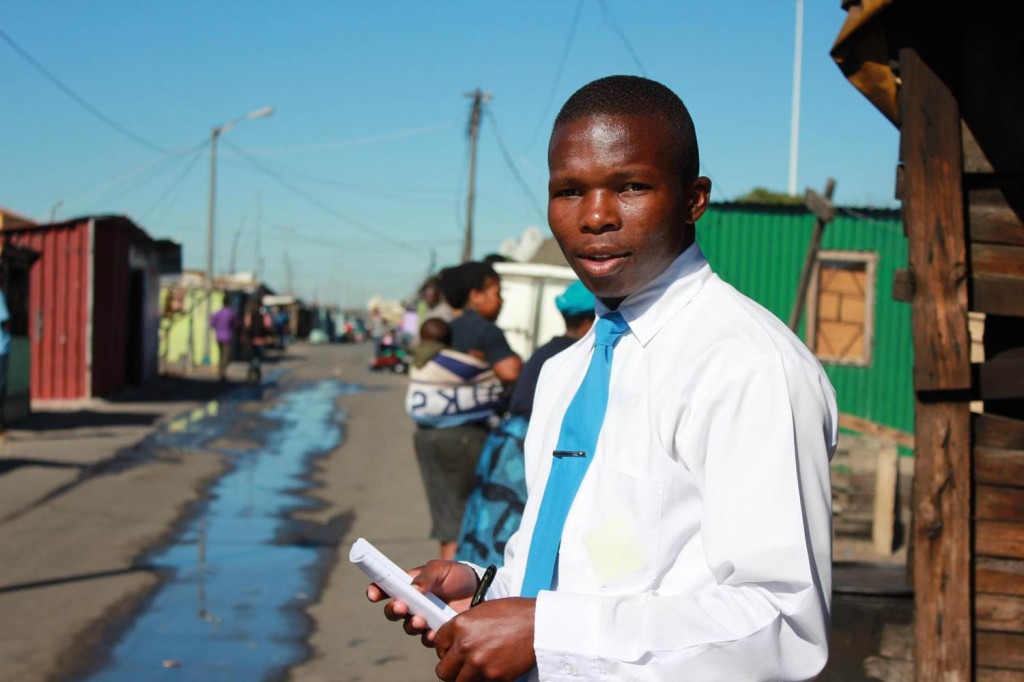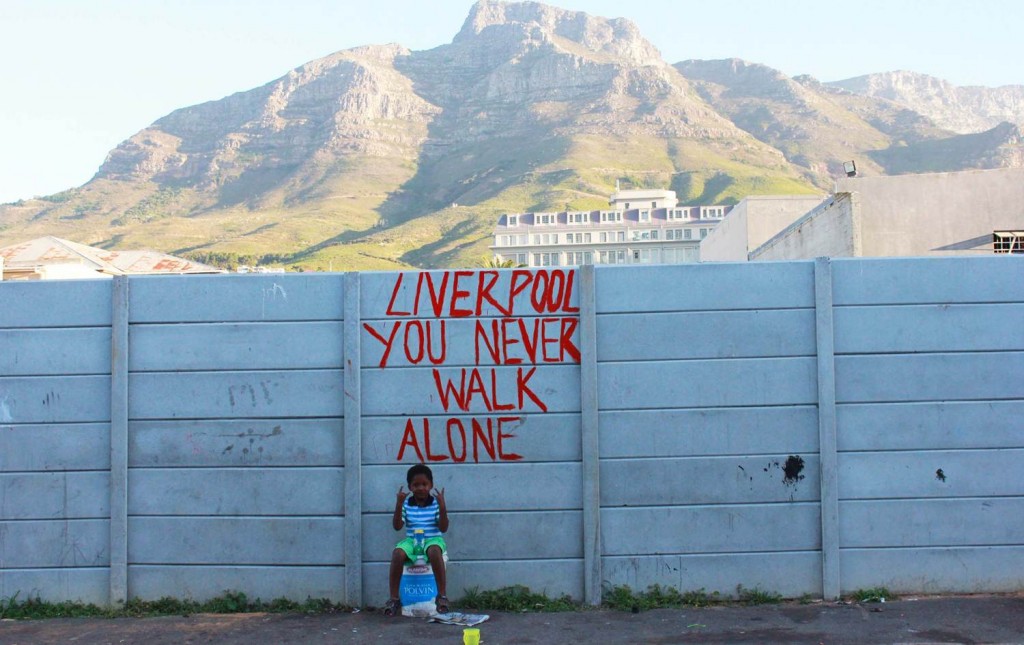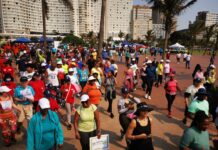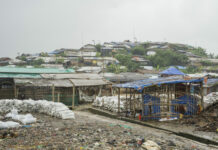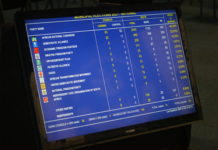In 1955, the ANC and its allies invited South Africans to record their demands for freedom. These demands were then expressed in a document known as the Freedom Charter. At apartheid’s end, the Freedom Charter became a cornerstone of South Africa’s new democratic constitution. Even now, as South Africans ponder the question of 20 years of freedom, it is the Freedom Charter that remains the yardstick of the actual freedom South Africans have secured. By RA’EESA PATHER
The people shall govern!Â
“In District Six people went through… It broke people’s hearts. We were pushed around, and some of us moved to Woodstock. Now we sitting in Woodstock and the whole situation is coming back to what it was. What freedom do we have when they taking our homes away? In 1976 I was shot. I fought for the freedom of this country, but we got no gains back.†– Mohamed “Rashid†Sheik Rahim, 51, unemployed, Woodstock
“It’s just in words democratic, but each one hasn’t been given their own equal rights. We had the Freedom Charter that said ‘the people shall govern’ the country, but this has not happened.†– Mohamed “Rashid†Sheik Rahim, 51, unemployed, Woodstock
There shall be peace and friendship!
“No, we don’t have freedom, because most of the people is still living in the past. The old regime, old grudges, whatever, they still live according to that.†– Dante Myburgh, 40, construction worker, Elsies River
“How can the youth enjoy the new South Africa? Imagine me and him are having an argument, we are both men. Now, why must you put racism in there? It’s a white issue, it’s a black issue, it’s apartheid issue. No, leave the pastâ€- Dante Myburgh, 40, construction worker, Elsies River
There shall be houses, security, and comfort!
“South Africa is not free now. I don’t have rights. You see now, four people in one room, and they share one toilet. No education, look we selling the sheep and it’s four children. Like now, I don’t have a grant and I have four children. There’s still racism and no one comes to ask how we feel.†– Victoria Hlathana, 50, informal trader, Langa
“Things are better now than they were before, there is change. Now we don’t go to jail, before we go to jail if we selling umqombothi (traditional beer). We work now, and when we selling the sheep, nobody comes to throw our work away.†– Victoria Hlathana, 50, informal trader, Langa
All national groups shall have equal rights!
“We’re an interracial couple, we worry when we have to look for accommodation whether the kids will be accepted. I want the kids to be where they are accepted, instead of asked why you darker or why you lighter.†– Patricia Nielsen, 43, stay at home mom, Century City
“South Africa is a free country, it’s just a couple of stereotypes are keeping people where they are. They are still locked up in the idea that they are not free. I think freedom in South Africa is a choice, you have to choose to be free.†– Patricia Nielsen, 43, stay at home mom, Century City
The people shall share in the country’s wealth!
“Freedom is a joke. Leaders know what the freedom is, because they experience freedom. Not us. From day one we didn’t experience any freedom in any way. Especially financial freedom.†– Andrew Julius, unemployed, Elsies River
“I’m an ordinary man, and I ain’t have much of an education. I need rights, I need dignity. For certain people, they’ve got democratic rights, they experience freedom. They don’t have to worry what they going to eat tonight, what they going to give their children to eat tonight.†– Andrew Julius, unemployed, Elsies River
All shall be equal before the law!
“We left here in 1989 because my husband was offered a very exciting opportunity in London, and I was very worried about what was going to happen in this country, that there would be a violent change-over. We came back four and half years ago because we love the country. My whole family is here, my daughters came with us and now my granddaughter is here, so it just goes to show how much we love it here.†– Katrine Collins, 65, Retired, Tamboerskloof
“Ostensibly, yes it is a free country. There’s meant to be a democratic government, but that’s where the problem lies. Under the law there is equality, and I think with the race relations and affirmative action they’ve done their best. Ironically now, it’s actually harder for whites to get jobs. I think whites, coloureds and Indians have difficulties, so there’s been a whole reversal.†– Katrine Collins, 65, Retired, Tamboerskloof
There shall be work and security!
“I would say, ‘Yes, we have freedom now.’ I wasn’t around, but it’s just the things I hear from my grandfathers and my grandmothers how things were before. Look now how we talk, back in the day this was not possible. I came here from Durban to change my life, but I don’t have any freedom here on the streets, I don’t have any rights. We living like rats. Freedom to me means equal rights for everyone. I don’t have enough rights, you know? I want to leave from here, and I am free because I can leave.†– SifisoNcube, 23, unemployed, Sea Point
“We are not free. Poor people aren’t part of the country, because the rich don’t give the poor the chance to use what was meant for them. The only thing to make South Africa a better place is try to be reasonable to all people and don’t look what colour they are, what race, what religion. Just be fair. I’m living in Mitchell’s Plain now, and the gangs take over. If you don’t join then they take bread from your table. If you sell flowers there, then it’s like you are in a crossfire. You can’t do it.†– Nadeem Jacobs, 47, flower seller, Mitchell’s Plain
“People don’t have an understanding. We all made sacrifices, everybody that went through the difficult time of apartheid. You wasn’t allowed to do what you want to do, talk to anybody. When the change came they said they were going to make fairness for everybody. But maybe in the future it will happen.†– Nadeem Jacobs, 47, flower seller, Mitchell’s Plain
The doors of learning and culture shall be opened!
“I think it has progressed in the sense that there is equality in terms of rights and things like that, but in a practical sense I don’t think there is a lot of freedom. People are still living in poverty, people don’t get the same education.†– Jessi Williams, 19, student, Lansdowne
“I don’t know if we should celebrate yet, there’s still a lot of work to do. Just because time has elapsed and there’s democracy, it doesn’t mean that everything is right yet. It’s hard to say. I guess in South Africa, we do have a lot of opportunities that we didn’t have before. I suppose, there’s opportunities, but not everyone can get them†Amalia Krupandan, 18, student, Sybrand Park
“We do have freedom, but not everybody is able to get access to that freedom. The accent thing still comes up. It happened to me a month ago. A girl asked me if I was Xhosa and I said yes, and she said ‘but you don’t sound black though’. I got really upset, because how does black sound?†– Luvuyo Duda, 18, student, Mowbray
“Superficially we have progressed, there aren’t any obvious forms of suppression, but I think it will take a while for the mentality that was built in people after all those years to be fully gone. I feel like there is still racial tension†– Tara Nair van Ryneveld, 18, student, Kenilworth
“Yes, we are free because now we have a lot of things. I feel free, because now I vote, I have free school, I have a free home. I’m not staying in the hokkie (shack), I’m staying in the flat.†– Masibulele Potelwa, 19, student, Langa
All shall enjoy equal human rights!
“People are not treated equally, because we are not staying in the same areas. Some are treated better than others. It’s not the same, because the whites, they have a lot of things. Blacks don’t have a lot of things. But now we play world cups, we have trance, we make houses. I am free, because I do everything that I want to do in this country.†– MasibulelePotelwa, 19, student, Langa


